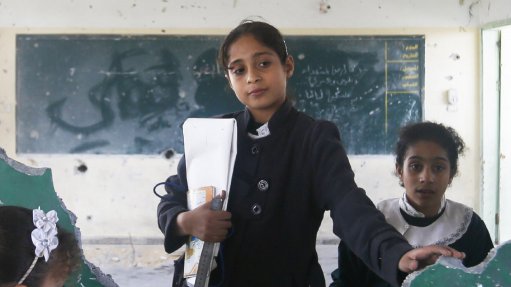
This briefing paper draws on findings from a Gender and Adolescence: Global Evidence (GAGE) mixed methods research study to explore Gazan adolescent girls’ and boys’ access to relevant and quality educational services. It draws on the responses of approximately 270 adolescents and 70 service providers and focuses on both opportunities and challenges, using a gender lens.
Our research found that girls’ educational aspirations are often markedly higher than those of their male peers – and broader than those their parents hold for them. Girls see schooling as not only key for their future independence and careers, but also for current socialisation and self-esteem. Notably, while both boys and parents often value girls’ education because they perceive that it will ultimately help girls become better mothers, girls do not see themselves in these instrumental terms. Boys, on the other hand, especially those from the poorest families, are largely frustrated by Gaza’s high unemployment rate and see less value in secondary and tertiary education.
Access to educational services – especially those that are relevant and of high quality – remains far from universal, despite the availability of schools themselves. Adolescents in our research reported that poverty and disability keep many from school, with restrictive gender norms further complicating the picture for girls, particularly those who are older or engaged or married. Adolescents also told us that classrooms are overcrowded, teachers poorly trained and overly directive, and discipline violent. Indeed, all of the adolescents involved in our research mentioned having been subjected to violence at school.
Report by the Overseas Development Institute